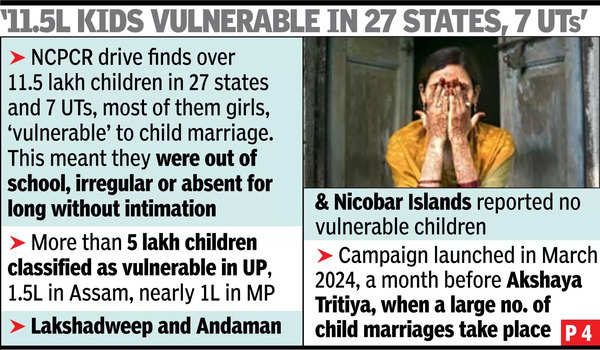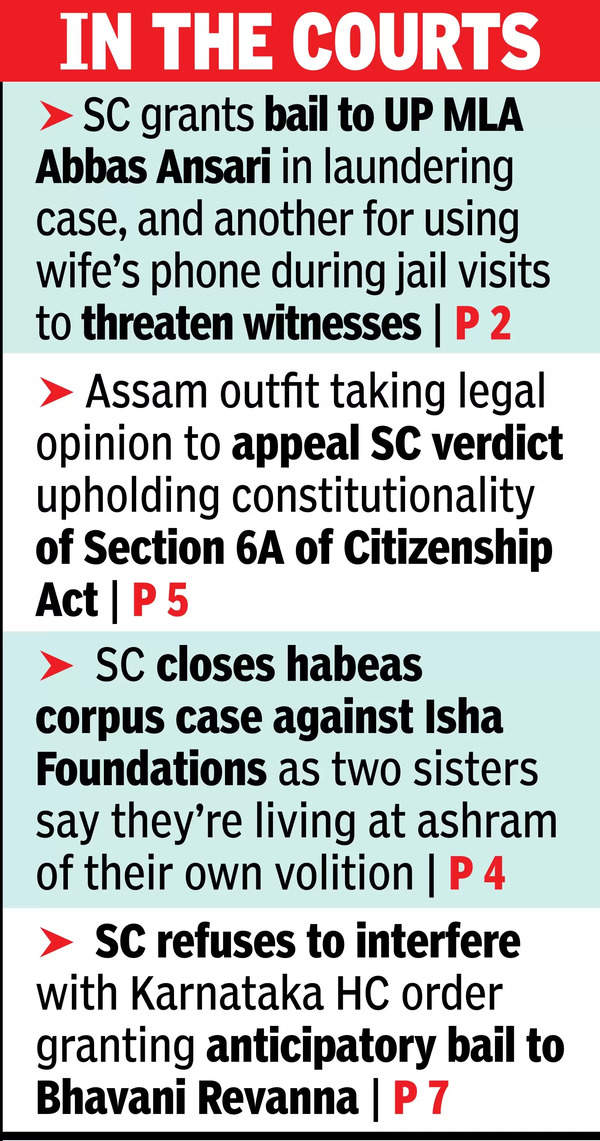NEW DELHI: Supreme Court on Friday spurned the Union govt’s invitation to direct application of the Prohibition of Child Marriage Act (PCMA) to citizens irrespective of their religion and personal laws but suggested that Parliament should consider outlawing child betrothals as well.
Delivering a 141-page judgment on a PIL highlighting the persistence of child marriages on an alarming scale despite enactment of PCMA 18 years ago, a bench of Chief Justice D Y Chandrachud and Justices J B Pardiwala and Manoj Misra said, “The issue of the interface of personal laws with the prohibition of child marriage under PCMA has been subject of some confusion.”
SC refuses to rule on PCMA as sought by Centre
Union govt, through ASG Aishwarya Bhati, had in a written note on behalf of WCD ministry submitted that there were conflicting opinions of HCs on precedence of PCMA over personal laws.“SC may consider issuing directions pronouncing that PCMA will prevail over the personal law governing marriage,” it requested.
Authoring the judgment, CJI Chandrachud said Centre has not provided details of conflicting judgments from HCs and that PCMA was silent on the validity of child marriages. “Prohibition of Child Marriage (Amendment) Bill, 2021, was introduced on Dec 21, 2021. The bill was referred for examination to department-related standing committee. The bill sought to amend PCMA to expressly state the overriding effect of the statute over various personal laws. The issue, therefore, is pending consideration before Parliament,” SC said, refraining from ruling as requested by Centre.
However, it laid down elaborate guidelines to strengthen measures to prevent child marriages. The CJI-led bench widened the scope of issue before its consideration to bring in betrothal of minors, and said PCMA was silent on this issue. “Marriages fixed in the minority of a child have the effect of violating their rights to free choice, autonomy, agency and childhood. It takes away from them their choice of partner and life paths before they mature and form the ability to assert their agency. International law such as CEDAW stipulates against betrothals of minors,” it said.

“Parliament may consider outlawing child betrothals, which may be used to evade penalty under PCMA. While a betrothed child may be protected as a child in need of care and protection under the JJ Act, the practice also requires targeted remedies for its elimination,” the apex court bench added.
Appreciating efforts of advocate Mugdha, appearing for the NGO ‘Society for Enlightenment and Voluntary Action’, in bringing to the court’s notice loopholes in implementation of PCMA, the bench said a studied approachby all stakeholders was needed for prevention of child marriages and protection of minors while penalising approach for violation of PCMA should be last resort.

